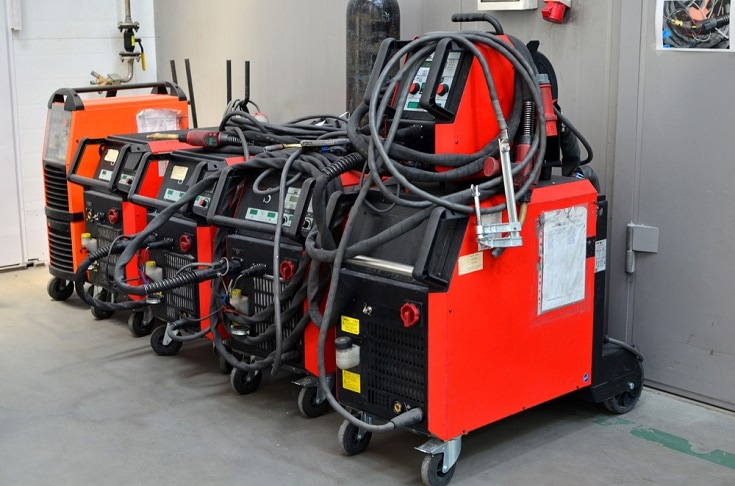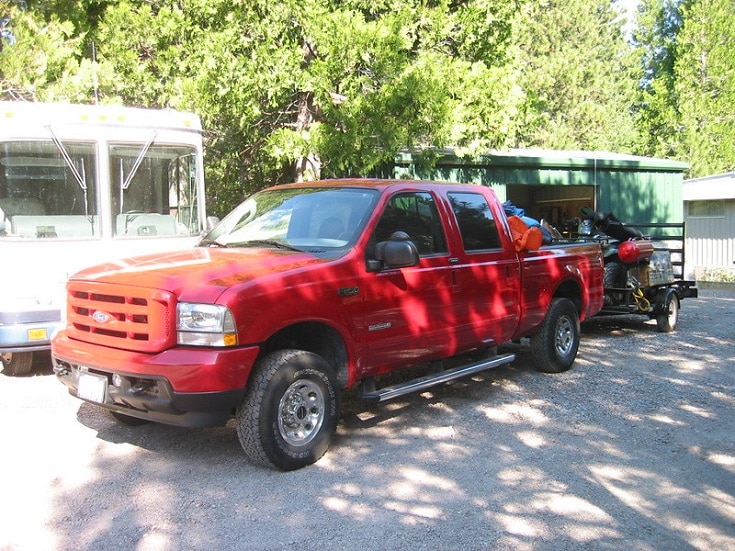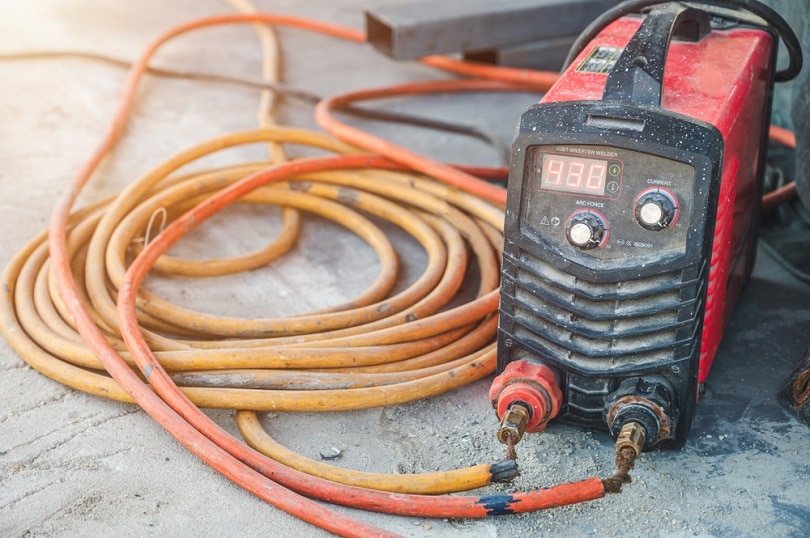How to Start a Profitable Mobile Welding Businesses: How Does it Work?
Last Updated on

With more and more people beginning to feel that the daily grind of a nine-to-five job is barely enough to make ends meet, self-employment has become an increasingly attractive option. Certainly, one of the main motivations of starting one’s own business is escaping so-called ‘wage slavery.’ Many industries have seen an increase in recent years. Welding is certainly keeping pace with a projected 3% growth over the majority of this decade according to the U.S. Bureau of Labor and Statistics.
Why Own Your Own Mobile Welding Business?
With the advent of Uber, DoorDash, and other independent contract work that lets you clock in at the push of a button, many nine-to-fivers have explored the option of working for themselves rather than ‘the man.’ This includes welders who want to utilize their skills and have the freedom that comes with self-employment.
While the projections aren’t exactly as high as they were back in 2018, it is clear that this industry isn’t going anywhere. It is still as viable a career path in the trades as it has been. Providing mobile welding services is an attractive option. Since the larger fabrication parts of the project are done in the field, there is less of a need for real estate to host a fab shop. Achieving Journeyman status as a Welder/Fabricator either through experience in a shop or through an apprenticeship program has given many employees the level of confidence needed to undertake this entrepreneurial pursuit.
You might be one of these people, in which case you are wondering, “How exactly do I get started?”
Do You Have What It Takes?
Firstly, you need to consider if you want to do it. Like any trade in the construction field, it is full of cutthroat bidders and other skilled workers. What are you going to bring to the market that stands out? The majority of welding businesses end up failing and it is largely due to entrepreneurial shortsightedness or lack of discipline in management.
Mindset
You also need to evaluate your mindset. Do you have an entrepreneurial mindset, or a technician’s mindset?
A lot of people fall prey to what business coach Michael Gerber calls ‘the E-myth,’ that is, that being a good technician makes one a good business owner. Just because you can set your machine parameters correctly, follow a WPS (Welding Procedure Specification), and lay down some pretty beads, does not necessarily mean that you will be able to take on marketing, bookkeeping, and managing potential employees. In fact, what you do on the technical side as a welder will probably end up being only about 20% of what you do.
Finances
Lastly, is the financial side. Unless you have everything that you need lying around already, you need to have thousands in capital for starting costs which can be quite a commitment.

How Do I Start a Mobile Welding Business?
So, you are still feeling brave, and you’ve decided you want to launch a profitable mobile welding business. Here are some steps to get started.
Step 1 – Certification
You might be qualified, but are you certified? Depending on the state in which you live, you may need to acquire a license for welding. It also depends on the scope of your work. Repairing exercise equipment will not require you to have a certification from the American Welding Society. However, structural steel projects for an apartment complex have a greater chance of requiring licensing. For example, the state of Washington issues certifications from the Washington Association of Building Officials.
If you come from a fabrication shop or from working with another company in the field, there’s a chance you may already have certifications from the city/state where you live. Look into what your state or city requires to be legally above board as a welder. You may need to practice for the certification test.
Step 2 – Buy a Truck and Trailer
It’s a mobile welding business. This means you are going to be spending a lot of time in that vehicle of yours. If there’s one thing you don’t skimp on, it’s the way you get to the job site. An unreliable work vehicle can be the deciding factor between keeping that job or letting it pass off to the next bidder. Of course, it needs to work for your business too. A spacious bed, rack for tools, and not to mention, comfortable.
This will function as your mobile office as well. Taking phone calls, writing out estimates, and eating lunch will likely all be done from your work vehicle. Depending on how much you’ll be hauling the bed of your truck, you will probably need to invest in a trailer as well.

Step 3 – Get Insured
This cannot be overstated. Accidents happen. General Liability insurance for your business is an absolute must to help you in claims of injury or property damage. Depending on the scope of your work, you might want to look into other policies as well. Construction accidents account for approximately 20% of all workplace injuries. On average, every day at least two people die in construction-related accidents. When you’re dealing with steel, you are dealing with material that is no respecter of persons.
Step 4 – Acquire Tools
Chances are that if you are thinking of starting your own mobile welding business, then you probably already have the necessary tools of the trade. But that’s not always true, especially if you benefit from some of the shop tools at your day job. The most expensive item that you will need to acquire is the welder/generator. You can expect to spend a few thousand dollars on a decent welder/generator. Of course, this is not just your welder. It’s your power source from which you run your grinder, work lights, and ventilation.
Here is a list of some basic tools you will need to get started.
- Welder/Generator with leads
- Oxyfuel Torch with cylinders and cart
- Grinder
- Portable bandsaw
- Weld gauges
- Bessy clamps
- C-Clamps
- Slag hammer
- Measuring tape
- Speed square
As long as you are in business, you will never stop acquiring and replacing tools. This is a bare-bones list to get you started. You will want to get a secure truck bed toolbox for storage as well.

Step 5 – Find Clients
If you are used to thinking from a technician’s point of view, finding leads might be difficult at first. You just want to drop your hood and burn some wire. Unfortunately, to get to that point you are going to have to find the work. Is there a new office building going up in your neighborhood? They may need structural steel work done before they can move to the next phase of the project. Hunt down the general contractor and make your bid.
One increasingly popular way to find clients has been through neighborhood networking apps like Nextdoor. You might just find someone who needs a trailer hitch welded back on. Do not underrate word-of-mouth. If you talk about your business within your network, you will eventually have some leads coming back to you, free of charge.
Step 6 – Market Your Business
Promote your new business firstly with a personal business card. This cannot be said enough. You are an entrepreneur now. Wherever you go you should be ready to sell yourself. Your business card should include important contact information, but more importantly, it should communicate what your business is about. Having a business card on you at all times is indispensable. You can also expand your business card to leaflets for distribution at local restaurants, cafes, etc.
While the distribution of cards and flyers is a more traditional method, there are plenty of paperless options to promote your business including Craigslist. But Facebook, Twitter, Instagram, and even YouTube advertisements are all ways that you can promote your business. While good advertising usually costs money, even utilizing the free aspects of these social media apps will allow you to spread the word into the furthest reaches of your personal network. The advantage of this is that your leads may be slightly warm and thus easier to sell.

How Much Does it Cost to Start a Mobile Welding Business?
Let’s start with the most obvious start-up costs for a mobile welding business. Firstly, you are going to need a dependable work truck that will last you some years. You are probably not going to want to spend less than $10,000 on your rig, especially when it is an essential component of your business. It’s what makes you mobile. A good welder/generator is going to be in the ballpark of $3,000 to $5,000.
Then you have to account for leads, welding consumables, shielding gas, oxyfuel setup, safety equipment, and a host of other tools. After certification costs, work vehicle, insurance, and tools you can expect to pay at least $20,000 in start-up costs. You also need to think about things like having a six-month emergency fund. Your business might fail, and you’ll be out of a job. It’s important you keep the lights on and food on the table.
How Much Do Mobile Welders Make?
Rates can vary quite a bit but generally speaking, mobile welding services can range from $60 to $125 per hour. But before you start thinking that you’re going to pocket all of that, you have to take into account overhead costs, materials, and everything else that makes your business run smoothly and efficiently. You might only take home $25 per hour for yourself, but that’s a place to start.

Final Thoughts
If you are itching to test out your entrepreneurial skills in combination with your technical skills in welding, then this may be a worthy pursuit for you. Follow the steps outlined above. It should provide you with a good start. Remember, there is no replacement for developing your own plan. Things will need to be tweaked along the way depending on where you are in the process.
We hope you have enjoyed our guide to starting your own mobile welding business.
Featured Image: Maksim Safaniuk, Shutterstock
